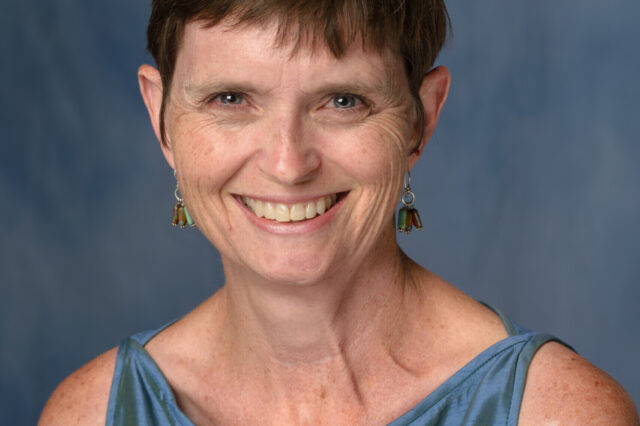Access to therapy via videoconferencing a major advance in OCD treatment

Patients with obsessive-compulsive disorder are benefiting from the increasingly widespread availability of therapy through videoconferencing and other computer-based programs, according to a review led by a University of Florida researcher and published today in JAMA, the Journal of the American Medical Association.
The review of randomized controlled trials and meta-analyses led by Carol A. Mathews, M.D., the Brooke Professor in the UF College of Medicine’s department of psychiatry, found that the No. 1 treatment for OCD is cognitive-behavioral therapy, a form of psychotherapy that is goal-oriented and focuses on solutions. The option of participating in face-to-face therapy via the internet — in cases where in-person therapy is not an option due to location or other reason — is considered a major advancement in the treatment of OCD, the review states.
“In lots and lots of places, there is no access to clinicians who specialize in OCD,” said Mathews, who is with the Evelyn F. and William L. McKnight Brain Institute of the University of Florida. “If you can access a clinician through Skype or the telephone or a blog, it’s a major advance because it potentially increases access to care dramatically.”
Obsessive-compulsive disorder is a biologically driven, chronic condition that affects 2 to 3 percent of Americans and can be effectively treated, relieving most symptoms. It typically develops in middle childhood or early adulthood, plaguing patients with repeated, bothersome thoughts that can become significantly impairing.
The new review also found that medication management can be effective as an enhancement to therapy or on its own if cognitive-behavioral treatment is not available, but Mathews emphasized that therapy remains the gold standard of treatment for OCD. Medications that have been shown to be most effective for treating OCD are selective serotonin reuptake inhibitors, same as the most commonly prescribed antidepressants.
In treatment-resistant cases of OCD, deep brain stimulation surgery has resulted in significant improvement in symptoms, Mathews said. Now approved by the Food and Drug Administration for this use, deep brain stimulation for treatment-resistant OCD is offered by UF Health.
“OCD is really underdiagnosed and underrecognized, and we really want to get family practice doctors, pediatricians and internists to start screening for it,” Mathews said. “Once it’s recognized, it can be very effectively treated. If not caught and treated early, this condition can have a profound impact on people’s lives.”
Mathews said she would like to see a decrease in the average time it takes to diagnose OCD and begin treatment, currently about 10 years.
Next for this line of research, Mathews said, is continuing to work on improving outcomes, particularly for people who are not responding to standard treatments.
About the author
